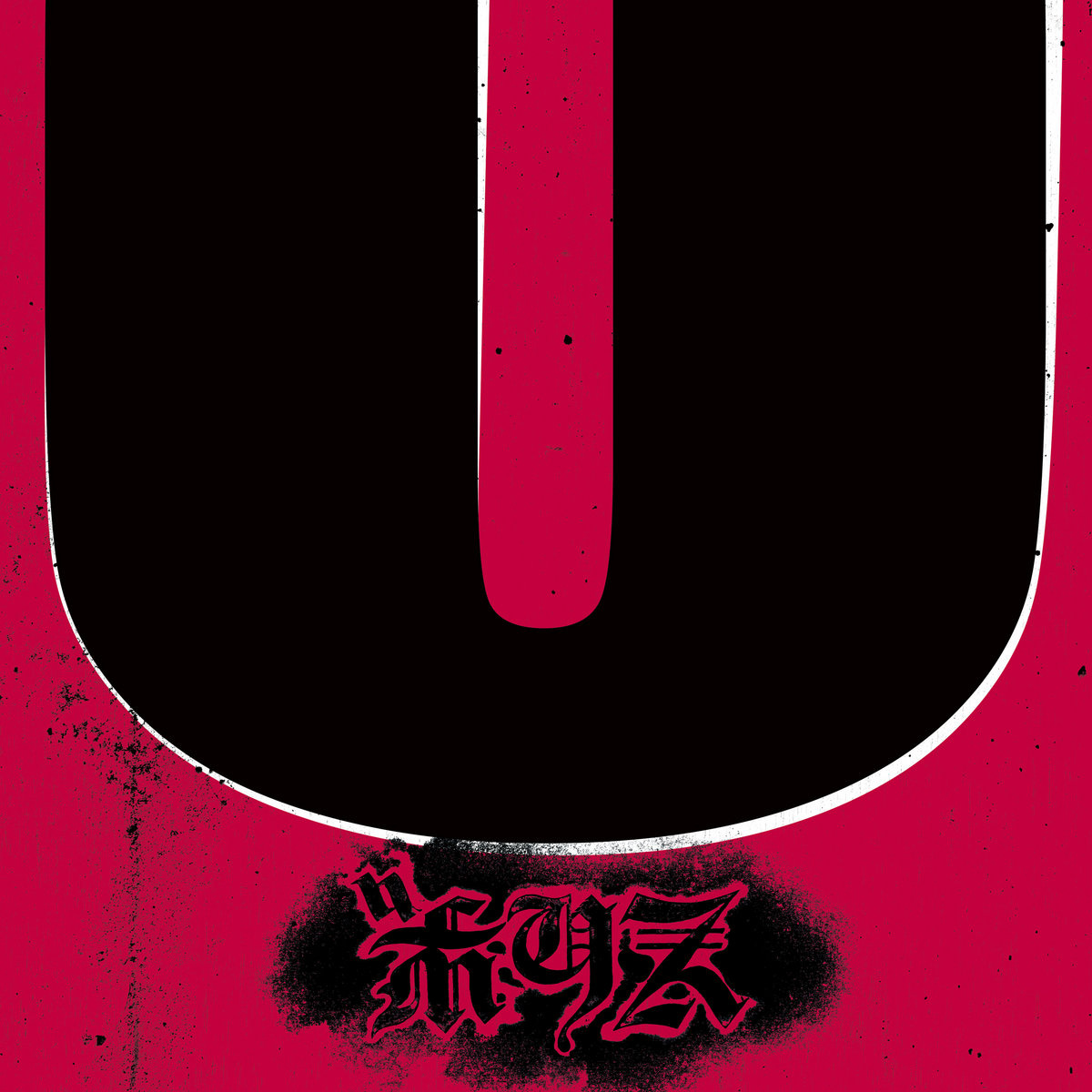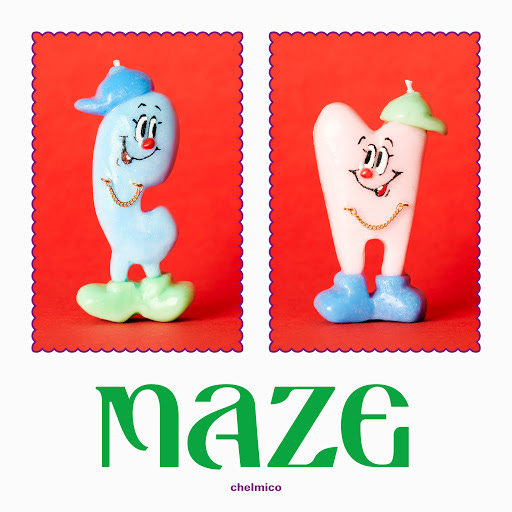Make Believe Melodies Favorite Japanese Albums 2020: #30 - #21
Marching on! Best experienced on the site rather than email!
#30 963 tick tock
Last year saw what felt like important symbolical ends for the idol boom of the early 2010s, with the Oricon charts feeling especially disposable and AKB48 being left off of NHK’s year-end Kohaku Uta Gassen, a stage they could usually bank on come December.
Where one lane ends…another begins! Idol music was great in 2020, thanks to a welcome pivot back to the experimentation that defined those golden years in the start of last decade (with less relying on the aesthetics of “underground idols” to make it happen…BiSH being one of the few success stories going right now). Duo 963 capture this shift nicely across tick tock, their second album featuring production work from a wide range of creators, helping give the pair a hopscotching musical variety without letting themselves get lost in the process. That’s in part to 963’s participants being able to sing and rap just well enough to never get over matched by the music around them — as is the case with most idol work, it isn’t polished, but that lets-just-do-it! energy is half the fun. It’s even more of a blast when paired with the city pop styling of Indonesia’s ikkubaru, who cast the pair in mid-tempo streetlight glow, or the nervy electronics of youheyhey, who nudges them towards SoundCloud idol rap on “SEED.” There’s an excitement and playfulness across tick tock — which, aside, best cover art by lengths — that defined a lot of the best music in Japan over 2020, while helping to signal a new creative wellspring for idol. Listen below.
#29 Tamanaramen Mabataki + Sour Cream + Future
The edges remain rough, but few artists in Japan perfected their own sonic character quite like Tamanaramen over these three releases. She’s been kicking around the edges for a while now — first time I can remember encountering her was on this compilation in 2018, when she was way more solid, as a state — floating somewhere between whisper-rappers like Izumi Makura and experimental pop tinkerers like Metoronori. This trio of work defines her, though, turning her rapping into a tool that can anchor down whispy numbers (“stone”) or become a multi-tracked instrument adding unease to sparse meditations (“angels garden”). She teases dance (“mei mei”) and discombobulates new age (“call”), all while threading her voice throughout, turning each into its own private escape. Listen below.
#28 Kenshi Yonezu Stray Sheep
There’s no reason to throw yourself against the rocks of trying to convince an uncaring world to devote brain space to J-pop…but, if you were to build a case for the industry, you point to this being the best-selling album in the country during 2020! Kenshi Yonezu has funneled the sub-cultural energy of Vocaloid into oftentimes off-kilter pop that somehow has…turned him into the top entertainers in Japan? Stray Sheep should just be the easy cash-in collection of hit singles so many albums function as in today’s market…and it kind of is, but Yonezu’s singles get weird, like the sloshing-around-and-talking-to-himself slink of “Flamingo” or the Autotune-as-whale-voice of “Spirits Of The Sea.” He’s ultimately a talented songwriter, whether by wringing melancholy out of what is normally an inescapable pre-school jam, or by delivering crowd-pleasing ballads (the weak points here), but his finest display of skills comes out on sound-effects-drizzled funk numbers that feel on the verge of collapse at every turn, while still clicking. The trend clock rolled back to disco…and Yonezu can even deliver an S-tier take on that! This is a blockbuster delivered by an artist who can’t fit into the costume and still flinches a bit when the spotlight falls on them, but finds a way to make all these quirks work. I think it should be discussed when talking “global pop” in the new decde…but millions have already listened to something as strange as Stray Sheep, and that’s triumph enough. Listen below.
#27 Boris NO
Now this is how you make a pandemic album. The world is set to be swamped by music “created during quarantine” about how “one day, everything will be great” and how “we were alone…but together.” It’s already starting…and it sucks! Every part of COVID-19 has been miserable, and I’ll take Boris’ in-the-moment catharsis over a limp ballad about a future that’s never going to come. Alongside Charli XCX’s how I’m feeling now, NO is the best kind of musical coping, with artists just throwing themselves in a frantic project to deal with…and get their minds off of…a world seemingly imploding around them. For Boris, that meant embracing their hardcore roots, resulting in their most energized album in a while and one that offered a nice hit of what a live show sounded like as the prospects of seeing one continued to shrink. Get it here, or listen below.
#26 Chelmico Maze
If Maze isn’t quite as consistent as last year’s Fishing, Chelmico’s big step into the pop spotlight featured their most audacious moments yet. The wrecking ball swings in right away with “Easy Breezy,” a Slipknot-nodding twister of pop asking what it might sound like if the Dust Brothers worked on an anime. It got Rachel and Mamiko on Music Station and nods in The New Yorker, rightfully so — little pop anywhere sounded as gleefully askew as this. The highlights follow a similar path, from the synth-stab strut of “Iruyo” to Hakushi Hasegawa making the case that every J-pop album from here on out should feature a song produced by him with “Gohandayo,” a dizzying number finding Chelmico carving out a path they can navigate over music on the verge of collapsing into a black hole. For all of the wonky attempts at redefining what pop in 2020 could sound like, Maze also saves space for sweeter earworms, highlighted by the dance-pop ripples of “Disco (Bad dance doesn’t matter),” an ode to nights out now lost and how even the shittiest parts of missing last train could be special. That reminded of the heart making this duo such a welcome addition to the upper levels of J-pop. Listen below.
#25 Toiret Status OTOHIME + Not Holy Drone
This is the moment in blurb writing where my brain went to mush, compounded by a sudden deluge of work (not complaining!) to throw this project into chaos. Fittingly, it comes with Toiret Status, an experimental artist whose wonked-out approach to electronic music remains frustratingly hard to pin down in anyway more eloquent than “what the fuck was that sound!?” OTOHIME sounds like…you melted down an SNES, but it could still play games. Like a warped VHS tape full of water sound effects. A sentient vacuum cleaner having a midlife crisis. You think that you’ve exhausted every way to describe this post Wasabi Tapes celebration of sound…and then you read Orange Milk’s album summary complete with the line “when people flush a toilet, [Toiret Status] hopes his music might play and become a funny reminder of the Japanese emphasis on politeness and social tact,” before delivering the haymaker “He likes the idea of turning something awkward into something fun.” I mean…that’s it, that’s the beauty of OTOHIME and follow up EP Not Holy Drone summed up perfectly. I wasted like two weeks not doing this list when I should have just let him nail why he’s one of the top oddballs in the country right now. Get OTOHIME here, Not Holy Drone here or listen below.
#24 Everything Stones Taro Put Out In 2020, So Prolific That I Was Discovering EPs Formerly Unknown To Me While Writing This Blurb
Seriously though…while setting this up and Googling for last second confirmation that I didn’t miss anything, I learned that I absolutely did! The Kyoto electronic artist put out a three-track EP on Kouncil Kuts in late December, a set of rave-glazed shufflers capturing yet another new angle on a creator who excels at channeling styles popular in the 1990s and finding a way to breath modern life into them. That’s an ethos bleeding over into his NC4K’s label — this year’s comp being a sort of spiritual inclusion to this entry — and an idea explored over the last 12 months. So, let’s just run them down: The Digital Vantage EP bridged rumbling breaks with dreamy atmospheric synth melodies to create a club fever dream, while NC4K offering Salt Desert would be my personal vote for Stones Taro’s best from 2020, a delirious house set with a disorienting sheen. Jungle became more central to September’s BAM002 and he let the acid burn through on Highball Records standout Pump. That’s a lot for any artist, but Stones Taro found a common sonic theme throughout, and proved themselves a worthy face for Japan’s new age of dance creators…and might have even more floating out there underlining that.
#23 T5UMUT5UMU Incantation + Wounds + Unsleep + Tsushima + Acid Hazing
On that topic…let’s jump to the other prolific producer worthy of that title. We are a month into 2021 and T5UMUT5UMU is already building on a massive 2020 that saw the creator dabble in all kinds of sound, to thrilling results. Their tracks are intimidating but loose, heavy (see Trekkie Trax release Acid Hazing) but capable of levity (Unsleep, a collaboration with vocalist Laenz featuring the latter’s voice being bent around T5UMUT5UMU’s spacious compositions to create a meditation that fits in at the club just fine). Like Stones Taro, T5UMUT5UMU channels the past to create music fit for the present, avoiding easy nostalgia trappings in favor of continued momentum forward. Momentum that doesn’t appear to be stopping.
#22 Mom 21st Century Cultboi Ride a Sk8board
The Japanese mainstream caught up to Mom in 2020, with a new generation of rappers, producers and assorted singer/songwriters getting in the genre-blur that this Saitama creator was spinning around in back on Ano(t)raks. So what’s one to do when the Rin Otos and Soranes step into the spotlight? Go more oddball. Rather than try to take advantage of the J-popification of this sound, Mom added more feedback to their vocals and let songs pivot into all kinds of direction while still playing out on 21st Century Cultboi Ride a Sk8board. Mom remains a springy vocal presence, working over bright neon funk (“Anti Time Travel,” doubling as a rare song rallying against nostalgia) and squiggly rap-rock moshes (“Cult Boy,” which honestly could be tagged HyperPop if that’s a style you believe in). Mom isn’t interested in fitting what he does into a larger trend, but rather seeing how they can keep pushing ahead. Listen below.
#21 Cametre Ningen
According to the machines putting together my Spotify Wrapped for 2020, nearly every song on Ningen appears in my top 10 most played numbers of the year. Sounds about right, streaming service! Tapestok Records remains on the cutting edge of idol sound, and this year’s entry in boundary pushing came courtesy of…Los An Jewels, a trio turned duo initially dabbling in rock-glazed rap before going full gecs (complete with “HyperPop” rebrand).
Months prior, labelmate Cametre put out their debut full-length album…before disbanding by the midpoint of the year. Compared to the rest of the Tapestok roster past and present, Cametre come closest to being what you’d expect idols to sound like. Ningen captures them figuring out their identity, trying on chugging guitars suited for mid 2000s blog rockers on “Imi Nai” while dabbling in rap on “Mataitsuka.” Yet they work best going right down the middle — Ningen dominated my subscription streaming feed and lands here because of just how catchy it is. No need to overthink this one — few songs in 2020 dug their way into my brain like “Subara” and “Barabara,” playground melodies leading into bob-along choruses. Plenty of great sonic details pepper this album — see the electronics adding a slight wooziness to “Chapasu” and the whole toy-land wonder of closer “Monorisu” — but Cametre earn this year’s Tapestok spot by reminding how, for all the subversion and sub-culture mining, an idol has to have the tunes to go with it. Listen below.
Written by Patrick St. Michel (patrickstmichel@gmail.com)
Twitter — @mbmelodies













